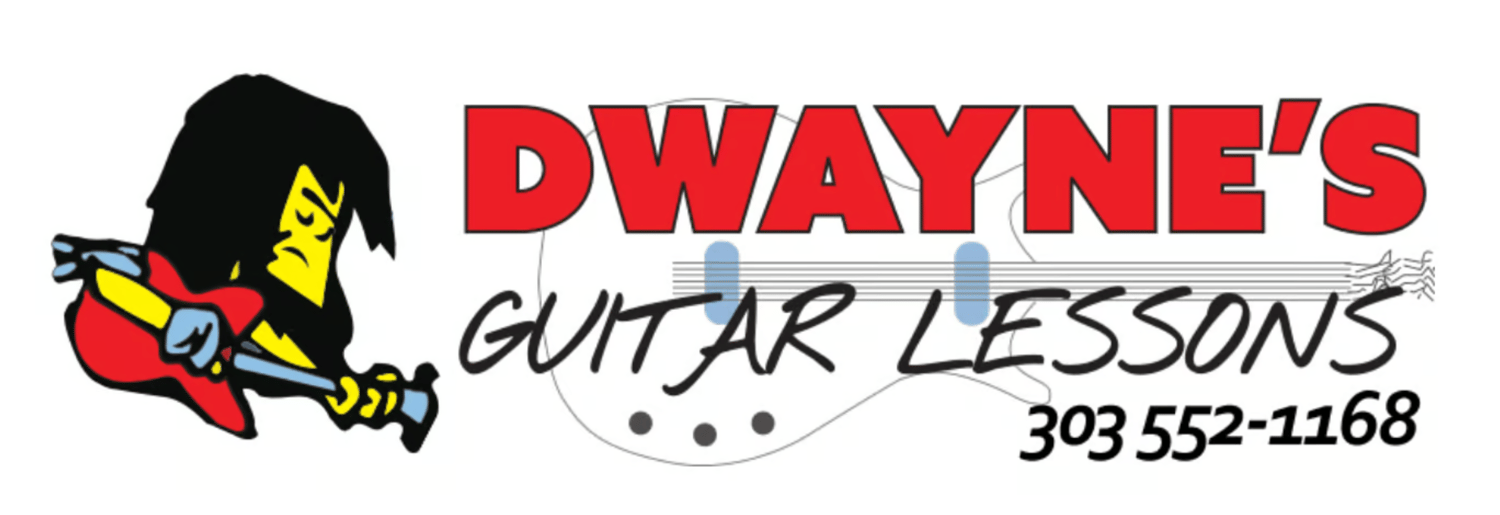In today's lesson, we are going to look at answering the age-old question, How long does it take to learn the guitar? Learning to play the guitar is an exciting journey that offers endless possibilities for self-expression, although it can vary greatly from person to person. The time it takes to become proficient depends on several factors, including the amount of practice, natural aptitude, and the complexity of the music you wish to play. Generally, with consistent practice, a beginner can expect to play simple songs within a few months. In today's lesson, we'll look at some tips that can accelerate your progress.
Key Tips for Faster Learning
Regular Practice:
The amount of time that you choose to dedicate to the guitar will be the biggest factor in your progress and understanding. Daily practice is key to building muscle memory, eye-to-hand coordination, and mental breakthroughs needed when learning something new. I recommend you aim for a certain time depending on your level.
Beginner: 15-30 minutes per day
Intermediate: 30-60 minutes per day
Advanced: 1-2 hours per day
By doing so, you keep the information in front of your brain and your muscles in shape. It takes time to learn an instrument. Especially the guitar, because it is not just physical movements that you need to master, like moving chords and scales, but also the mental aspect of it, like remembering notes and theory. Remember, music is a language, and learning it takes the same amount of effort as any other language.
So, consistency is key. Practicing daily or several times a week is far better than practicing for longer periods of time sporadically. The reason for this is that when you are not practicing, what you've previously learned goes by the wayside. Then, when you come back to it, you need to start over in the learning process. Avoid this with daily practice sessions.
Learning Method:
The way you choose to learn the guitar can massively affect your progress. There are several methods available, and it is up to you to explore different options and find the one that works best for you. When I was learning long before the internet, I found progress in books. Here are a few options to consider.
Method Books: This option is great because these types of books offer a step-by-step system of learning. This allows you to learn in a specific order where the lessons build upon each other. This method also helps you to develop self-discipline and time management, which can be a big help in other areas of your life. Method books are a great way to learn and are highly recommended.
Online Courses: This type of learning has been around long before the internet. They were home study courses that were accessed through the mail. Nowadays, they are accessed through your computer and are a lot more effective. These types of courses are video lessons that are course-designed and work great, because you get video and audio as well as what is in the books. Another option that takes you step-by-step and is highly recommended.
Guitar Classes: This is a way of learning that works for those who like to learn with others. You take a class with other aspiring guitar players, where you learn together and help each other out. Connecting with other musicians helps to build community and camaraderie. This method works well for some, but not for others. It will be up to you to choose if you'd like to give it a try. Another method that is highly recommended.
Private Tutoring: This is my favorite way of learning, if you can find the right teacher. The right teacher can help you progress quickly and have fun in the process. Unfortunately, the wrong teacher can make your learning slow and uneventful. So make sure, if you go this route, you find the right one. Now, the benefit of this option is that you can learn what you need to learn to get where you want to go fairly quickly. You can learn in the proper order, and you can get instant feedback from your teacher as far as hand positioning and overall guitar tone.
You also get personal attention, and don't need to be self-conscious about your learning progress like you might be in a classroom with others who might be progressing at a faster rate. This can make you feel uneasy about yourself. With private lessons, you can progress at your own pace and feel good about doing it. This way, you build self-confidence, you feel good about asking questions, and you have fun within the learning process.
Method Style Conclusion: When it comes to learning methods, these are the most common. You can also learn from watching YouTube videos, but I don't think it's as good a method as what's stated above, because you just end up bouncing around. Like they say, "The quickest way between two points is a straight line," and that's what you want. No jumping around. Learn what you need to learn in the order you need to learn it in. This is what the methods mentioned above (especially the method books, online courses, and private tutoring) offer. Give them all a try, and find what works for you. You'll then be on your way to guitar-playing success!
Dedication & Motivation:
Once you find the method that best works for you, it will then be your dedication and motivation that will determine how well you progress. Setting clear goals (which will be addressed in further detail below) and sticking to a plan of action daily will have significant results in the development of your abilities. Stay on track, and watch yourself make leaps and bounds in your progress.
Set Goals:
The best way to start your guitar-playing journey is to set goals. Decide what it is you want to accomplish by learning the instrument. Do you want to play in a band? Do you just want to play for yourself? Do you just want to learn for a relaxing activity? Answering these questions will give you a clear picture of what you need to do to get there. Wherever that may be.
Make sure to break your learning into achievable milestones, such as mastering a chord or playing a simple song. This will help you to build confidence in yourself and keep you focused on wanting to learn more. This is a major key element. If you bite off more than you can chew, you'll get discouraged and quit. Keep it simple and light in the beginning, and have fun with your development.
Use Resources:
Leveraging online tutorials, guitar apps, and music books to enhance your learning is also a great idea. With the internet, you have many tools at your fingertips that can help you progress more efficiently. You want to make sure to take advantage of these wonderful tools. Tuners, song transcriptions, and even amplifiers you can control with your phone are all the rage in today's society. So use these resources to help excel in your learning.
Estimated Timeline For Learning
While everyone's guitar learning journey is unique (it's what I love about the guitar), here are some general timelines to give you an idea of what to expect.
Basic Proficiency: (3-6 months) With regular daily practice, you can expect to learn basic chords, strumming patterns, and simple songs within this time frame.
Intermediate Level: (1 to 2 years) At this stage, you should have a good grasp of the guitar, be able to play a range of songs, and begin exploring more complex techniques like fingerpicking and barre chords.
Advanced Level: (3-5 years and beyond) Becoming an advanced guitarist involves mastering certain concepts and techniques, improvisation, and playing complex songs all the way through. Possibly creating and recording your own music, and performing on stage, while focusing on dedication, commitment, and continuous learning.
Tips For Accelerated Learning
Set Guitar Goals: This was briefly mentioned above, and can not be overlooked. Setting guitar goals helps you to stay focused, on track, and motivated to keep going during the down times. But like the old saying goes, "If you don't know where you are going, how will you know when you get there?" So make sure to set guitar goals so you know where you are going, and when you get there.
Work on Timing Development: This is another thing that cannot be stressed enough. Timing! I cannot begin to tell you how many guitar players overlook this. Don't do it! Every musician must develop an internal clock. This is done through focused practice and working with a metronome, or drum machine. Work on developing your timing, and your guitar playing will soar above the crowd.
Record Yourself: This is an excellent idea. When you record your playing, you get to listen to it from an outside perspective. Which can sound different than when you're in the moment. This will help you to judge your progress and see where you might need to improve. While constantly focusing on getting better, you build confidence and discipline.
Track Your Progress: You must know at all times where you are along your journey. It's like if you went on vacation to Disneyland, you'd know what route to take, how long it's going to take to get there, and exactly where you are at along the journey. Guitar learning is no different. You must know how you are doing, what things you need to zone in on to improve, what things are improving, and what techniques need more practice. By tracking your progress, you'll be able to progress faster.
Lesson Conclusion:
Learning to play the guitar can be a rewarding journey that can build a skill that lasts a lifetime. In fact, it's something you can pass on to others, like I'm doing right now. But it does require dedication, persistence, and passion. While there is no definitive timeline for mastering the instrument, you can bet that if you follow the examples outlined in this lesson, you will be having fun learning to play in no time.
Understanding the factors that influence your progress and implementing effective practice strategies daily can help you achieve your musical goals more quickly and efficiently. Remember, the journey is just as important as the destination. So make sure you have fun along it, and while doing so, you will be progressing forward in no time. You just might surprise yourself in how far you come in a very short amount of time.
More Help Available:
If you feel that you'd like some personal assistance with your guitar learning, I do offer private one-on-one instruction. As stated above, this kind of learning can not only help you progress in the best way possible but also provide guidance that makes learning enjoyable. So, if this might interest you, just contact me through my website at Dwayne's Guitar Lessons, and we'll set up a free consultation.
Good luck with your guitar playing,
And thanks for your time today.
Sincerely, Dwayne Jenkins


